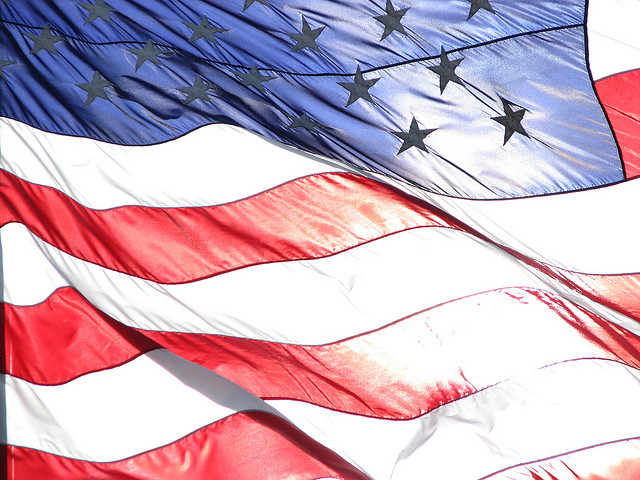There are two more presidential debates to go. Tonight, President Barack Obama and Gov. Mitt Romney face a town-hall-style audience, answering questions from Americans concerned about everything from unemployment to war. This should yield important talking points for all of us to consider, and give us facts to take with us to the voting booths on Nov. 6.
Or we could get another Big Bird.

via jcolman, Flickr
During the first debate, Romney looked moderator Jim Lehrer in the eye and told him PBS funding would go if he is to become the next president: "I like PBS. I love Big Bird. I actually like you, too. But I'm not gonna keep on spending money on things to borrow money from China to pay for it."
The Internet went bonkers. Saturday Night Live made funny. President Obama included B-Bird in a campaign ad. Facebook profile photos changed. Sexy Big Bird became the new It costume for Halloween (le sigh).
Entertaining stuff, sure, but here's why it's no laughing matter: PBS gives us the type of unbiased, global perspective so desperately needed today. Threatening to take that away -- leaving us with, what, Fox News and networks at the mercy of their corporate sponsors? -- is a serious issue.
Consider the recent documentary, Half the Sky, which aired earlier this month. Based on the groundbreaking book by Nicholas Kristof and Sheryl WuDunn, this special showed areas of the world where women are abused, raped, oppressed and forgotten. Despite the harrowing stories -- a 3-year-old sold into sex slavery in Cambodia; a 14-year-old rape victim in Sierra Leone being thrown out of her house for daring to speak out; thousands upon thousands of women dying in childbirth due to lack of healthcare -- it's a story of hope. Educate and value women and you can change the world.
Would you see this on NBC, TLC or even HBO? With so many messages and agendas being thrown at the American public these days, the need for media literacy is more critical than ever. This is a feminist issue of the utmost urgency. If we passively accept what information we're getting, we don't retain much power to affect change.
So, yes, we should fight to preserve PBS (and know why we're doing it), but we also must understand what's being said in a presidential debate rather than picking up the hype after the fact. In an effort for more of us to do just that, here are some steps to watching the remaining debates:
1. Watch the actual debate on the day of the debate. Any later and you're going to be subject to a skewed perspective.
2. Try to tune out other media noise (Facebook, Twitter, blogs galore) during the debate. Giving yourself room to think and feel uninfluenced by outside perspectives can help you form a more concrete, educated opinion about the issues. Compare your point of view with others after you've ruminated on it for awhile.
3. Read and view analysis with a grain of salt. Everyone jumps in to analyze how things went during the debate, give their opinions as to who "won," and attempt to skew your perspective. There's value in seeing some of this if for no other reason than to understand how ridiculous things can get. But if you're going to watch one extreme (say, MSNBC) watch the other (FOX News) and see where your ideas fit in.
4. Talk about it. Talking with friends, family members, even your social network about the issues -- not the hype -- fosters a discourse so desperately needed in this election.
5. Vote.
Originally published on the author's website, sexyfeminist.com